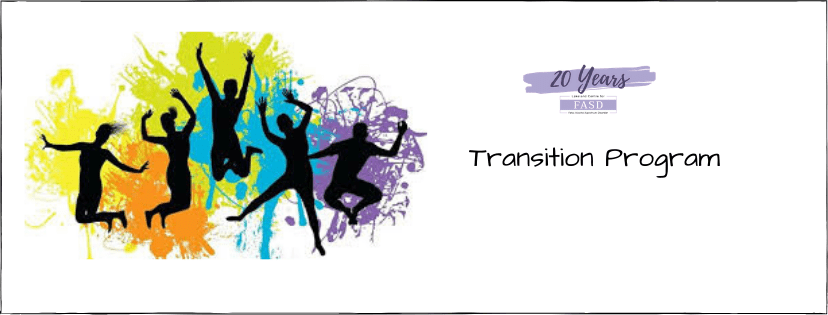Blog

Transition Program: Adulting is hard, we’re here to help!
June 20, 2020 | In: General Information
For those diagnosed with Fetal Alcohol Spectrum Disorder, transitions can be a particularly challenging task. Back in 2009, the Lakeland Centre for FASD recognized that many youths needed extra support while transitioning into adulthood. It was noted that many of the societal expectations for young adults such as getting a driver’s license, moving out, or going to college, are strenuous for those diagnosed with FASD. Physical age versus brain age becomes a daunting factor when entering adulthood. Suddenly, you’re an adult physically, but mentally, struggling at a much younger age in a world that can be difficult to navigate.
As this need was identified, the Transition Program was developed for youths aged 15-24 years old. By starting at a younger age, ample time is giving for planning. It is, however, never too late to make a plan! The transition between adolescence and adulthood can be very stressful for individuals with FASD and their families.
The transition planning process works best when there is a team of supports and a stable environment. The team approach is recommended as each person can contribute valuable information to the individual’s transition plan. This team is headed by our Transition Coordinator who facilitates the 3-6-month planning process and writes the final transition plan. The Transition Coordinator gathers information from the client and their supports to help identify the client’s goals, areas of needs, and required community supports. They connect with the youth one-on-one to build rapport and explore suitable options for the youth’s future. Together, they create a personalized story, a project of their choice, that should help discuss interests, strengths and needs of the individual.
Transition teams will vary in size because some adolescence will have more supportive, healthy adults in their lives than others. Every team will include the Transition Coordinator and the youth and may include supports such as family members, caregivers, teachers, social workers, counsellors and church members. Supports can provide helpful insight on the adolescent’s strengths, abilities, interests and areas of need. Supports can also identify a variety of priorities and help the adolescent meet their goals. Every individual with FASD is different, so every transition plan will be unique to them and the future they would like to pursue. For some this may be entering the workforce or volunteering, for others it may be a post-secondary program. Transition plans identify needs from a holistic view of life; Health/Wellness, Education, Employment, Recreation, Social Development, Income/Finances, Living Skills and Culture. Planning can help ensure that young adults are well supported in all aspects of life.
At the end of the Transition Program, our clients walk away with a written document that outlines their short- and long-term goals, strengths, areas of need, support network, and an individualized action plan. There have been many youths that have prepared to transition into adulthood successfully through this program! Together with a plan and a supportive team, the possibilities are endless for youth with FASD. If you know of a youth with FASD who could benefit from our Transition Program or if you would like more information, please contact Lakeland Centre for FASD at 780-594-9905.

ABOUT LCFASD
The Lakeland Centre for FASD provides cost-free programs and services in the Cold Lake, Bonnyville, St. Paul and Lac la Biche areas, as well as on First Nations and Métis Settlements through Alberta.